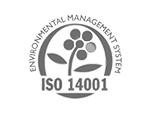In today’s fast-paced supply chain world, delivery reliability isn’t just a nice-to-have—it’s the difference between smooth operations and costly disruptions. Whether you’re managing temperature-sensitive pharmaceuticals or bulk industrial materials, the predictability of your shipments directly impacts your bottom line and customer relationships. This is especially true when handling challenging cargo like powders and granular substances, where specialized equipment and expertise become essential. The following article breaks down why delivery reliability matters so much, how top transport companies achieve it, and what you should look for when choosing a logistics partner that won’t leave you stranded. If you’ve ever faced the frustration of missed deliveries or schedule uncertainty, you’ll find practical insights to help strengthen your supply chain.
Why is delivery reliability so important in transportation?
Delivery reliability forms the backbone of effective supply chain management. When shipments arrive precisely when expected, manufacturers can maintain leaner inventories, retailers can promise specific availability to customers, and production schedules remain uninterrupted. This precision directly impacts your bottom line by reducing warehousing costs and preventing production downtime.
Beyond the immediate operational benefits, consistent delivery performance builds the trust that sustains business relationships. In today’s competitive environment, reliability isn’t just appreciated—it’s expected. Late or unpredictable deliveries can damage your reputation and lead to lost contracts, while reliable service creates opportunities for long-term partnerships.
For industries handling time-sensitive or specialized materials, reliability becomes even more critical. Temperature-controlled products, just-in-time manufacturing components, and materials requiring special handling all depend on transport companies that deliver not just quickly, but predictably.
What planning strategies do transport companies use to ensure timely deliveries?
Transport companies employ sophisticated planning methods that begin long before a vehicle leaves the depot. Route optimization software analyzes multiple variables—traffic patterns, distance, fuel consumption, and delivery windows—to determine the most efficient paths. This technology doesn’t just save time; it creates predictability that forms the foundation of reliable service.
Load planning is equally important, particularly for specialized cargo. Properly distributed weight improves vehicle handling and fuel efficiency while reducing wear on equipment. For powdery and granular materials, correct loading techniques prevent shifting during transport that could cause delays or safety issues.
Preventive maintenance systems follow structured schedules rather than waiting for breakdowns. By servicing vehicles at optimal intervals, transport companies minimize unexpected mechanical failures that lead to missed deliveries. This approach requires investment in qualified technicians and quality parts, but pays dividends in reliability.
Weather-adaptive scheduling accounts for seasonal challenges, adjusting departure times and routes based on forecasted conditions. This proactive approach to transport planning prevents many weather-related delays before they occur.
How does technology help transport companies maintain delivery reliability?
Modern transport reliability depends heavily on technology that provides visibility throughout the journey. Real-time GPS tracking systems allow both transport companies and customers to monitor shipment locations, with immediate notifications for any deviations from schedule. This transparency helps manage expectations and enables quick adjustments when needed.
Predictive analytics has transformed how transport companies approach reliability. By analyzing historical data on routes, weather impacts, and vehicle performance, companies can forecast potential disruptions and take preventive action. This shift from reactive to proactive management significantly improves delivery consistency.
Telematics systems monitor vehicle health metrics in real-time, alerting maintenance teams to emerging issues before they cause breakdowns. Engine performance, brake wear, tire pressure, and other critical factors are continuously assessed, creating a safety net that prevents many reliability failures.
Communication technology keeps all stakeholders informed throughout the transport process. Automated updates, driver communication systems, and contact platforms ensure that any adjustments can be coordinated quickly across the delivery chain.
What role does specialized equipment play in ensuring reliable transport of challenging materials?
Transporting powdery and granular materials reliably requires purpose-built equipment designed for these specific challenges. Specialized bulk tankers with pneumatic loading and unloading systems minimize handling time while maintaining product integrity. These vehicles are engineered to prevent contamination and product loss during transport, which could otherwise cause significant delays.
Safety features on specialized transport equipment don’t just protect people and products—they enhance reliability. Pressure monitoring systems, temperature controls, and moisture prevention technology ensure that materials arrive in the expected condition. When transporting sensitive materials like food ingredients or chemical powders, these systems are essential for maintaining delivery schedules.
Advanced pneumatic systems greatly increase efficiency during loading and unloading. What might take hours with conventional equipment can be accomplished in minutes, creating more flexible delivery windows and reducing the impact of unforeseen delays at other points in the journey.
Equipment standardization across fleets allows for greater flexibility when unexpected vehicle issues arise. When one truck can be quickly substituted for another without compatibility concerns, delivery schedules remain intact despite mechanical challenges.
How do transport companies handle unexpected disruptions to maintain reliability?
Even with perfect planning, transport operations face unpredictable challenges. Effective contingency planning involves developing specific response protocols for common disruptions like traffic incidents, vehicle breakdowns, or facility access issues. These plans include predefined alternative routes, backup vehicles, and clear decision-making authorities.
Weather events represent some of the most common reliability challenges. Transport companies maintain relationships with meteorological services to receive specialized forecasts for their routes, allowing them to adjust schedules proactively rather than reacting after disruptions occur.
When mechanical issues arise despite preventive maintenance, rapid response systems activate mobile repair units or arrange immediate vehicle substitutions. These systems depend on strategic parts inventories and qualified technicians positioned throughout the service area.
Communication during disruptions is critical to maintaining customer satisfaction, even when delays are unavoidable. Professional transport companies provide immediate updates and revised delivery estimates through their contact systems, allowing clients to adjust their own operations accordingly.
Key takeaways for choosing a reliable transport partner
When selecting a transport company for your valuable shipments, look for evidence of systematic reliability measures rather than just promises. Companies with comprehensive preventive maintenance programs, advanced tracking systems, and specialized equipment demonstrate a genuine commitment to consistent service.
Transparency indicators like real-time tracking access, clear communication protocols, and willingness to discuss contingency plans suggest a company that prioritizes reliability. Ask potential partners about their specific approaches to weather events, mechanical issues, and traffic disruptions to assess their preparedness.
At Powder-Trans, we’ve built our reputation on reliability over five decades of transporting challenging powdery and granular materials across Northern Europe. Our specialized fleet, comprehensive tracking systems, and experienced team work together to ensure your materials arrive exactly when and how you expect them. If you’re looking for a transport partner that understands the critical importance of delivery reliability, request a transport quotation to discover how we can support your supply chain needs.






